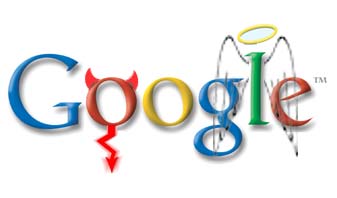Who said that Internet and new technologies tended to dematerialize our representations of the world?
Here is my city, my "arrondissement", my neighborood and my street! Look closer and you'll even catch a glimpse of my building!
Agrandir le plan
Why do you use facebook?
jeudi 29 novembre 2007
E-culture anthem
BLOG IS ALL, by the Bob Squad (Marion, Marie-Cécile, Magali, Morgane)
Everybody’s got to live together
All the people got to understand
So you love your neighbour
Like you love your brother
Come on and join the band
Everybody needs to use e-culture
Oh it’s the greatest adventure
We’re so happy and we're celebrating
Generosity is the queen
Blog is all
Blog is all
Come on and go with Bob
Blog is all
Yeah ! Let’s blog !
All the people got to understand
So you love your neighbour
Like you love your brother
Come on and join the band
Everybody needs to use e-culture
Oh it’s the greatest adventure
We’re so happy and we're celebrating
Generosity is the queen
Blog is all
Blog is all
Come on and go with Bob
Blog is all
Yeah ! Let’s blog !
mercredi 28 novembre 2007
The No-Strike Zone
Ahahah, silly little french workers! Somehow, train users don't seem to find it very funny...or at least not while the strike is on.
So for a whole week, no trains, no tubes, no buses, no Velibs...no school!
Except of course for e-culture classes, to which we can participate from home since "Internet is never on strike"!
Believe me, it's the first time - and probably the last - I've attended a course in PJ's!
Policing on the internet

In novembre 2007, a finnish eighteen-year old student shot 8 people in his high-school after publishing a video on youtube called "Jokela high-school massacre". “I am prepared to fight and die for my cause,” he wrote in a post, “I, as a natural selector, will eliminate all who I see unfit, disgraces of human race and failures of natural selection.” Couldn't be clearer.
Question is: coud this kind of tragedy be avoided by a closer surveillance of video sharing webcasts (such as youtube or dailymotion for instance) or social networks?
As there are more and more e-platforms allowing to share videos, photos, personal infos and news, it is both crucial and increasingly difficult to hunt down actual harmful users.
What's more, this system can question the freedom of speech: e-police cannot arrest potential criminals basing on simple words...But waiting for them to act on their intentions is useless...
So where is the limit?
Success-stories on the internet

They're young, they're rich (come on girls!) and they own their e-companies:
- Mark Elliot Zuckerberg (born May 14, 1984) is an American computer programmer and entrepreneur. He attended Harvard University and founded the online social networking website Facebook (with the help of fellow Harvard student and computer science major Andrew McCollum as well as roommates Dustin Moskovitz and Chris Hughes).
We don't know the exact amount of his personal fortune but at the age of 23, his company is valued at approximately US$ 15 billion...so we'll assume that he doesn't sleep in the streets...
- Not so young but immensely rich, no need to introduce...Bill "Microsoft" Gates.
He is one of the best-known entrepreneurs of the personal computer revolution. Although he is widely admired,his business tactics have been criticized as anti-competitive and in some instances ruled as such in court.
On the other hand, Gates has pursued a number of philanthropic endeavors, donating large amounts of money to various charitable organizations and scientific research programs through the Bill & Melinda Gates Foundation, established in 2000.
The annual Forbes magazine's list of The World's Billionaires has ranked Bill Gates as the richest person in the world from 1995 to 2007, with recent estimates putting his fortune worth over $56 billion USD.
- Other exemples of success stories, but no so much as far as founders are concerned:
Kamini, a french singer who posted an amateur song about his village in the french region of Aisne, Marly-Gomont, on Youtube and met an unexpected enthusiasm...in may 2007 his CD came out and since the beginning of the year he goes from concert to concert...
So Internet may not have brought wealth in this case but fame and a new life...(see also the exemple of Lilly Allen in England)
mercredi 21 novembre 2007
About Google

Just to remind the basics, Google is an American public corporation, specializing in Internet search and online advertising. The company is based in Mountain View, California, and has 15,916 full-time employees (as of September 30, 2007).
Google's corporate philosophy includes statements such as "Don't be evil" and "Work should be challenging and the challenge should be fun", showing thus a resolutely relaxed and "generous" motto.
However, the corporation seems to be growing stronger and richer with everyday: Google is estimated worth $23 billion.
With plenty of new applications in very diversified fields - Google Earth, GMail, Google Video, Google News, Google Translate...- Google is no longer a "simple" research engine and it also provides advertizing services (in 2006, the company reported $10.492 billion in total advertising revenues).
With so many field activities, Google is bound to raise controversy, here are some interesting links about the subject:
- Google in China
- Google in the garden of Good and Evil
Generally speaking, we can say that Google often is the heart of attention because its development and activities are related to very current issues (privacy, free speech, intellectual property rights...). What's more, the motto "Don't be evil" induces very strong reactions from those who find themselves concerned by ethical controversies...
jeudi 8 novembre 2007
Do you Facebook?

Launched on February 4, 2004, Facebook was founded by Mark Zuckerberg, a former member of the Harvard class of 2006. Initially the membership was restricted to students of Harvard College. It was subsequently expanded to all Ivy League schools within two months. Many individual universities were added in rapid succession over the next year. Eventually, people with a university email address from institutions across the globe were eligible to join. Networks were then initiated for high schools and some large companies.
Since September 11, 2006, it has been made available to users with any email address if they are within a certain age range. Users can select to join one or more participating networks, such as a high school, place of employment, or geographic region.
What was first an intra-university website has now become one of the most powerful social network on the internet with more than 50 millions users all over the world. Its success can be explained by the numerous applications you can find on it: photo and video sharing, personal profile - including matrimonial status, religious and political views, nationality etc, a "wall" where everyone can post a note and many more funny apps such as personality tests, movie rewiews...
Of course advertizers have been interested by such a source of personal informations, freely shared and shown by the many users...
That's why Mark Zuckerberg, Facebook's 23 year old chief executive announced on november 6th that Microsoft had purchased a 1.6% stake in Facebook for $240 million - when Google had failed in his attempt.
In a word, Microsoft's strategy is to buy a part of Facebook - when buying the entire company is way too expensive, its value being estimated of $15 billion - in order to be Facebook's exclusive partner in publicity and thus to position on a juicy market.
Prosper and Trust


I recently found out about the website Prosper.com,the idea is quite original though very simple: lend money to those who need to borrow some. Everybody can be an usurer! You even get to choose the interest rate, whether you lend or borrow money.
It is quite strange actually, and the main question to raise here is that of trust:
How can you lend money to someone you have never met? However there are drastic security measures (you have to complete a profile with a security number and your identity), but some people may still find it hard to wholly trust 1) the website itself 2) people who use it.
And if the concept may seem generous at first - those who have money lend to those who need it - look closer and you'll find it's not that ideal: prosper.com claims that "Borrowing money through Prosper is fast and easy, and because you're borrowing from people, the rates may be lower than you'd expect!"
Then if you look at the Borrow page, you'll find interest rates up to 25.61%... Where's generosity in that?
Inscription à :
Commentaires (Atom)
